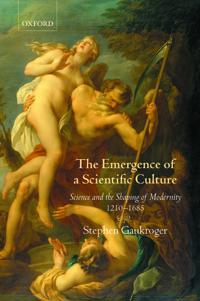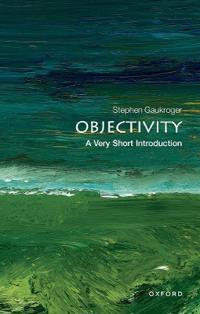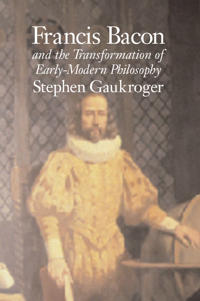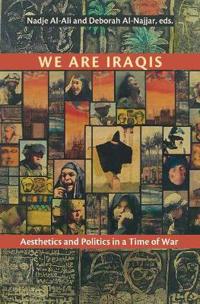The Emergence of a Scientific Culture (Häftad)
avStephen Gaukroger
ISBN: 9780199550012 - UTGIVEN: 200810Why did science emerge in the West and how did scientific values come to be regarded as the yardstick for all other forms of knowledge? Stephen Gaukroger shows just how bitterly the cognitive and cultural standing of science was contested in its early development. Rejecting the traditional picture o[...]
Objectivity (Häftad)
avStephen Gaukroger
ISBN: 9780199606696 - UTGIVEN: 201205- Is objectivity possible? - Can there be objectivity in matters of morals, or tastes? - What would a truly objective account of the world be like? - Is everything subjective, or relative? - Are moral judgments objective or culturally relative? Objectivity is both an essential and elusive philosophi[...]
The Collapse Of Mechanism And The Rise Of Sensibility (Pocket)
avStephen Gaukroger
ISBN: 9780199664665 - UTGIVEN: 2012-11-01How did we come to have a scientific culture -- one in which cognitive values are shaped around scientific ones? Stephen Gaukroger presents a rich and fascinating investigation of the development of intellectual culture in early modern Europe, a period in which understandings of the natural realm b[...]
The World and Other Writings (Pocket)
avRene Descartes, Stephen Gaukroger, Rene Descartes
ISBN: 9780521636469 - UTGIVEN: 199811Descartes' The World offers the most comprehensive vision of the nature of the world since Aristotle, and is crucial for an understanding of his later writings, in particular the Meditations and Principles of Philosophy. Above all, it provides an insight into how Descartes conceived of natural philo[...]
Francis Bacon and the Transformation of Early-Modern Philosophy (Häftad)
avStephen Gaukroger
ISBN: 9780521805360 - UTGIVEN: 2001-03This ambitious and important 2001 book provides a truly general account of Francis Bacon as a philosopher. It describes how Bacon transformed the values that had underpinned philosophical culture since antiquity by rejecting the traditional idea of a philosopher as someone engaged in contemplation o[...]
We are Iraqis (Inbunden)
avRene Descartes, Stephen Gaukroger, Rene Descartes
ISBN: 9780815633013 - UTGIVEN: 201212The Blackwell Guide to Descartes' Meditations (Häftad)
avEditor:Stephen Gaukroger
ISBN: 9781405118743 - UTGIVEN: 2006-01-31The Blackwell Guide to Descartes' Meditations (Inbunden)
avEditor:Stephen Gaukroger
ISBN: 9781405118750 - UTGIVEN: 2006-01-31










